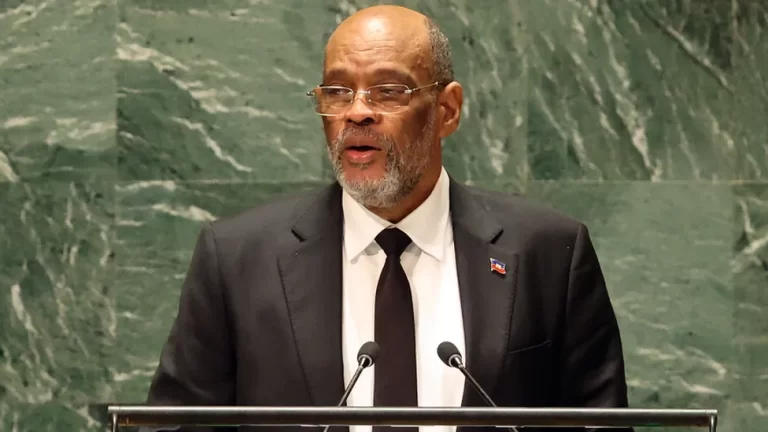Haiti's Prime Minister Ariel Henry has resigned, the chair of the Caribbean group of countries has said, following weeks of mounting pressure and increasing violence in the country.
It comes after regional leaders met in Jamaica on Monday to discuss a political transition in Haiti. Mr Henry is currently stranded in Puerto Rico after being prevented by armed gangs from returning home.
He had led the country since the former president's assassination in July 2021.
Speaking following the meeting in Kingston, Caribbean community chair and Guyana President Irfaan Ali said: “We acknowledge his resignation upon the establishment of a transitional presidential council and naming of an interim prime minister.”
Heavily armed gangs have controlled the streets of the Haitian capital of Port-au-Prince in recent days, demanding the resignation of the unelected prime minister.
Mr Henry had been in Kenya to sign a deal on the deployment of an international security force to help tackle violence when a coalition of gangs attacked police stations and stormed two of Haiti's largest prisons.
A plane carrying Mr Henry was stopped from landing following sustained attacks at Haiti's international airport.
Haiti: The basics
- The Caribbean country shares a border with the Dominican Republic and has an estimated population of 11.5 million
- It has a land area of 27,800 sq km, which is slightly smaller than Belgium and about the same size as the US state of Maryland
- Chronic instability, dictatorships and natural disasters in recent decades have left Haiti the poorest nation in the Americas
- An earthquake in 2010 killed more than 200,000 people and caused extensive damage to infrastructure and the economy
- A UN peacekeeping force was put in place in 2004 to help stabilise the country and only withdrew in 2017
- In July 2021, President Jovenel Moïse was assassinated by unidentified gunmen in Port-au-Prince. Amid political stalemate, the country continues to be wracked by unrest and gang violence
— CutC by bbc.com


